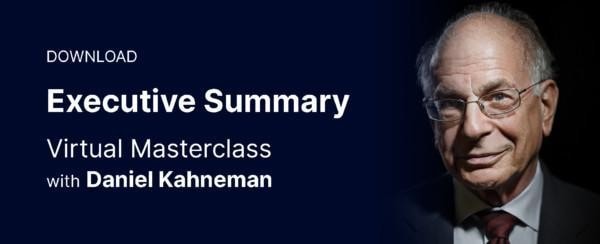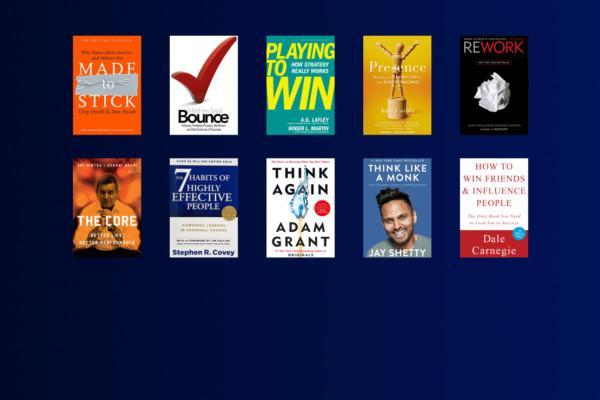21Dec2021
This time our biweekly Leader’s Digest newsletter focuses on organizational development with the help of pros like Marcus Buckingham and Daniel Kahneman.
Top Content Picks
💡 Full Keynote: There are 9 lies that pervade our workplaces—and they prevent us from succeeding at work, argues Marcus Buckingham.
📚 Books: In need of good reading to enjoy over the holidays? Check the list of our team’s favorite personal development and business books.
⭐️ Article: What would (and should) a Managing Director have on their ambition list for next year? Read the wish list by Sanna Suvanto-Haarsae.
Opportunity to Step Up
Earlier this autumn, we had a virtual masterclass with the iconic psychologist Daniel Kahneman. For a full overview of the session, check our written summary.
To get a little taste, here are a few ways you can improve decision-making in your organization:
1. What was the question again? When our brain has to answer a complex question, we subconsciously replace it with an easier question. If you need to solve a complex problem, start the meeting by asking: what exactly is the question we want to answer?
2. A minute of silence and writing. Diverse perspectives lead to better decisions, but many discussions are dominated by the first thing said by one person. So, first, ask everyone to write down their key points in silence. Then ask each participant to briefly state their points before starting the conversation.
3. Take the job-interviewer approach. When you need to make a decision, first: set criteria. Which requirements must a good solution meet? Then, gather information on the solution options and evaluate how each solution scores on these individual criteria.
Our Recommended Source for New Ideas
Now, great employees have more power to choose where they work. But how can you overcome this “war for talent”?
In the latest Table Group podcast episode, Patrick Lencioni tackles the problem by providing 3 ways to increase employee engagement and retention.
Stop and Think
”Feedback needs to be actionable, frequent, and informal.”
Daniel Pink

 by:
by: 

